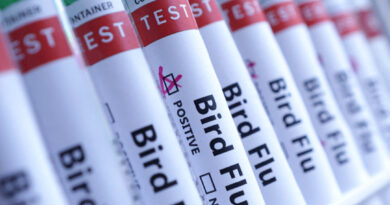Jury Ruling: NY Times Did Not Defame Sarah Palin in Retrial
The verdict signifies the second occasion a jury has dismissed Palin’s libel accusations.
The latest Manhattan jury tasked with examining Sarah Palin’s case against The New York Times reached a verdict similar to the first, ruling on April 22 that the newspaper was “not liable” for defaming the former governor of Alaska.
The jurors acted quickly, returning their decision mere hours after commencing their discussions.
“Maintain your faith,” she added.
An emotional moment during the retrial occurred last week when James Bennet, a former editor of the New York Times opinion section, issued a heartfelt apology to Palin in court.
With tears in his eyes, Bennet expressed to the former vice presidential candidate that he “messed up” when he mistakenly claimed there was a “clear” and “direct connection” between a 2011 mass shooting that critically injured then-Rep. Gabby Giffords (D-Calif.) and a map distributed by Palin’s political action committee.
This editorial, which called for stricter gun regulations, was published concurrently with an incident wherein a shooter with a history of hostility toward the GOP opened fire on a congressional baseball practice, injuring Rep. Steve Scalise (R-La.) and several others.
Two days later, The New York Times issued a correction, clarifying the specifics of the map and stating that no connection had been proven between political rhetoric and the 2011 shooting. The attorneys for the newspaper highlighted this swift correction as evidence that the editorial board’s actions were not done with malicious intent.
Palin contended that the damage remained uncorrected.
“This was a game changer,” she testified on April 21, detailing the impact of the editorial on her life. “I felt powerless. It just drained the energy out of you.”
Palin pointed out that the correction did not mention her name, complicating her efforts to rehabilitate her reputation “when the loudest voice in the room, the most credible, largest publication was telling lies about me.”
She also mentioned receiving death threats related to the editorial.
“It became more frightening. It escalated,” she stated.
During cross-examination, Palin admitted to being a best-selling author, having millions of social media followers, and still being invited to speak at conservative political events.
Contributions to this report were made by Dave Paone, Chase Smith, and The Associated Press.





